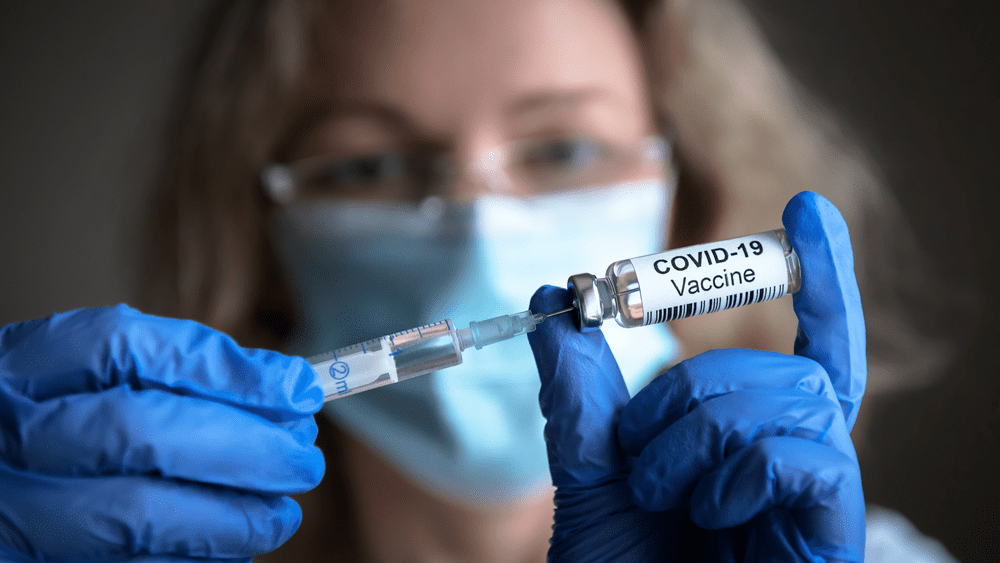COVID-19 vaccines have been a modern science success story with data showing how effectively they have reduced hospitalization, deaths and severe illness. In the U.S. the most widely used vaccines are based on mRNA technology. While mRNA technology may be new to most of us, scientists have been developing this technology since the 1980s.
One concern that received a lot of attention when these vaccines were deployed was the risk for allergic reactions. After more than 1 year of use and millions of doses administered, the data shows there are between two to four allergic reactions for every million doses of mRNA vaccine administered. To put this in perspective, there is a higher chance of being hospitalized if you are infected with COVID than having a severe allergic reaction to these vaccines.
Why would someone want to get tested to see if they might have an allergic reaction to the COVID-19 vaccine?
Individuals should be evaluated by a board-certified allergist/immunologist if they have a history of any allergic reaction within four hours of receiving the first COVID shot, or an allergic reaction to any of the components of the COVID-19 vaccine.
How will Charleston Allergy & Asthma evaluate COVID-19 vaccine allergic reactions?
Our team of allergists/immunologists will take a careful history of your reaction to the COVID-19 vaccine and any other vaccines or medications in the past. In most cases, no testing is required, and we can provide guidance on receiving COVID-19 vaccination.
If testing is indicated, we use a protocol that was developed by a team of allergists/immunologists specifically for COVID-19 vaccination. The protocol tests for immediate skin test reactivity to the vaccine components polyethylene glycol, polysorbate 20 and polysorbate 80. We use both skin prick testing and intradermal testing. With skin prick testing, we introduce the testing material to the immune system just under the skin. There is no bleeding and only minimal discomfort from the testing device that lasts for a few seconds. Intradermal testing uses a very small needle to inject the antigen under the skin.
The tests can be administered at any Charleston Allergy and Asthma location. The test results are available immediately when the test is completed. The test can take up to three hours to complete.
If someone tests positive for an allergic reaction to the COVID-19 vaccine, what should their next steps be? Will they be allergic to all three that are currently available (Pfizer, Modern, J&J)?
If you test positive for one component, but negative for a different component, then that may suggest that one of the vaccines may be better tolerated than the others. In that case, you and your board-certified allergist may decide to proceed with vaccination to a particular brand of COVID-19 vaccine.
In almost all cases, the COVID-19 vaccine can be safely administered through a graded administration in which the vaccine is given in several injections given over an hour instead of all at once. This technique has been successfully used in persons who have experienced anaphylaxis to the first dose of their COVID-19 vaccine. This graded administration technique has been used for decades for patients with a history of allergic reactions to other vaccines.
Are there any risks associated with getting tested to see if an individual is allergic to the COVID-19 vaccine?
As with any allergy testing, there is a rare risk of an allergic reaction. Our experienced staff monitor patients for any sign of allergic reaction throughout the procedure.
How effective are the COVID-19 vaccines that are currently available (Pfizer, Moderna and Johnson & Johnson)?
The vaccines currently available in the U.S. have been shown to reduce COVID-19 infection by 72 – 95% and prevent 86 – 100% of severe infections.
What are some of the most common side effects experienced after receiving the COVID-19 vaccine?
Most people experience mild side effects from the COVID-19 vaccine that are similar to common side effects from other vaccines. Most people, if they have an allergic reaction, will experience the following:
- Headache (22% of recipients)
- Tiredness (17% of recipients)
- Dizziness (17% of recipients)
- Chills
- Fever
- Nausea
- Muscle aches
These side effects are a sign that your immune system is recognizing the vaccine and developing protective antibodies. These symptoms generally go away on their own in 1-2 days. For some people, these common side effects are more intense after the second dose of a 2-shot series.
How are reactions treated at COVID-19 vaccination sites? Is every site equipped to handle reactions?
The CDC has created a Checklist of Best Practices for Vaccination Clinics Held at Satellite, Temporary or Off-Site Locations. This checklist includes expectations that vaccine providers are CPR certified and that an emergency medical kit is on-site. Most vaccine sites are advising patients to wait 15 minutes after receiving the vaccine to ensure they are in a location where medical assistance can be provided.
What signs should an individual look for or consider as they gauge their risk of an allergic reaction to the COVID-19 vaccine?
Most severe allergic reactions start within 15 minutes of the vaccine being administered. Common symptoms are hives, cough, shortness of breath, fast heart rate or nausea. Let a vaccine provider know if you experience these symptoms.
Are there any additional details to note on allergy testing for the COVID-19 vaccine?
The COVID-19 skin testing protocol was developed by experts in the allergy and immunology field using our current understanding of the ingredients of the COVID-19 vaccines. The protocol has not been extensively evaluated so we do not know how reliable the test protocol is. The testing results will provide you and your allergist information that can be incorporated in decision-making regarding COVID-19 vaccine administration.
If you have a history of allergic reactions to the COVID-19 vaccine, our team of board-certified allergists recommends you consult with your healthcare provider before receiving the COVID-19 vaccine. To find out if it’s recommended that you receive allergy testing for the COVID-19 vaccine, request an appointment with one of our board-certified allergists today.




